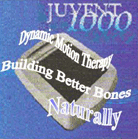
Lord Mayor of Cork Terence McSwiney died on hunger strike on 25 October 1920...
The propaganda boon which resulted from the Corkman's death wasn't lost either on a company called Creation Films, which was about to release a movie titled: For the Freedom of Ireland. Ever the canny businessmen, the producers realised the heart-rending death of an Irish patriot made the timing perfect. Hence the following politically incorrect quote from a marketing memo advising cinema-owners how best to sell the film.
"Exploitation angles: The only sincere way of exploiting this picture will be to put it over as propaganda. The story, while interesting, is decidedly subordinate. You should be able to stimulate interest by linking McSwiney's case with the facts involved. In Irish communities, the picture will be a whiz and it should be lavishly advertised."
From the moment he announced himself in the Waldorf-Astoria, de Valera had received umpteen offers to put his name, and the stamp of his office, on songs and films about Ireland. One writer asked his permission to dedicate a vaudeville number he'd written "to the cause of Ireland". Permission was refused. A pair of Ohio authors offered to sell de Valera a film script that would finally bring the complete history of Ireland from before the English arrived to the big screen. While that idea was also dismissed out of hand, he was smart enough to realise that at a time when almost 90% of Americans went to the movies at least once a week, motion pictures represented a particularly slick form of propaganda.
Hollywood debut
Eamon de Valera made his Hollywood debut then in November 1919. Back during his fractious trip to Los Angeles, towards the end of his speaking tour, he went to the Capital Film Studios to pose for a series of special pictures that formed the conclusion of For the Freedom of Ireland. Written by Hal Reid, a "dramatic love story" in six reels was directed by Roy Sheldon and starred Vincent Coleman – whose other credits that year included an anti-syphillis commercial – as Robert Emmet Corrigan. There is no explanation why de Valera got involved in this particular project, while eschewing so many others, although the breathless publicity material might hint why.
"For the Freedom of Ireland is claimed as probably the greatest photoplay championing the cause of Ireland ever attempted. It is the pictured oppression of a nation striving to gain its release from the yoke which clamps it to earth. It is the plea of a smaller nation for an equal freedom, an equal right to national growth. The fact that the events portrayed spring spontaneously from the hearts of a people is enough to ensure its enthusiastic reception."
The lead character, Corrigan, is an Irish-American who – inspired by de Valera's own escape from Lincoln Jail – returns to Ireland to assist in the fight against the English. He ends up being arrested and sentenced to death by firing squad, escaping due to the intervention of Sinn Féin. His girlfriend joins him in Ireland, where she is also imprisoned before dying, while fighting off the unwanted attentions of a British soldier. At the end, Corrigan decides to leave Adair (presumably Adare) and to head back to America to assist de Valera there in his quest to gain recognition for Ireland.
Suitably impressed
A rough cut was shown to an invited audience at Orchestra Hall, Chicago, on 10 November 1919. The 2,500 present that night were suitably impressed, even if the final scenes involving de Valera weren't shot until later that month. Contemporary reviews weren't exactly kind. One critic said "the laurels of Fairbanks, Chaplin et al are safe".
The time lapse between the premiere and the general release of For the Freedom of Ireland, nearly a year later, was down to the censors. Ironically enough, de Valera's first personal experience of the cinema business involved men with scissors insisting certain scenes ended up on the cutting-room floor.
"Some members of the board received the impression that America is somewhat derided at points," commented an official from the Chicago Censorship Board.
Extracted with the permission of the publisher the O'Brien Press from 'De Valera in America' by Dave Hannigan, price €14.99/ £11.99 paperback. Available from booksellers
nationwide




 del.icio.us
del.icio.us digg
digg Facebook
Facebook






